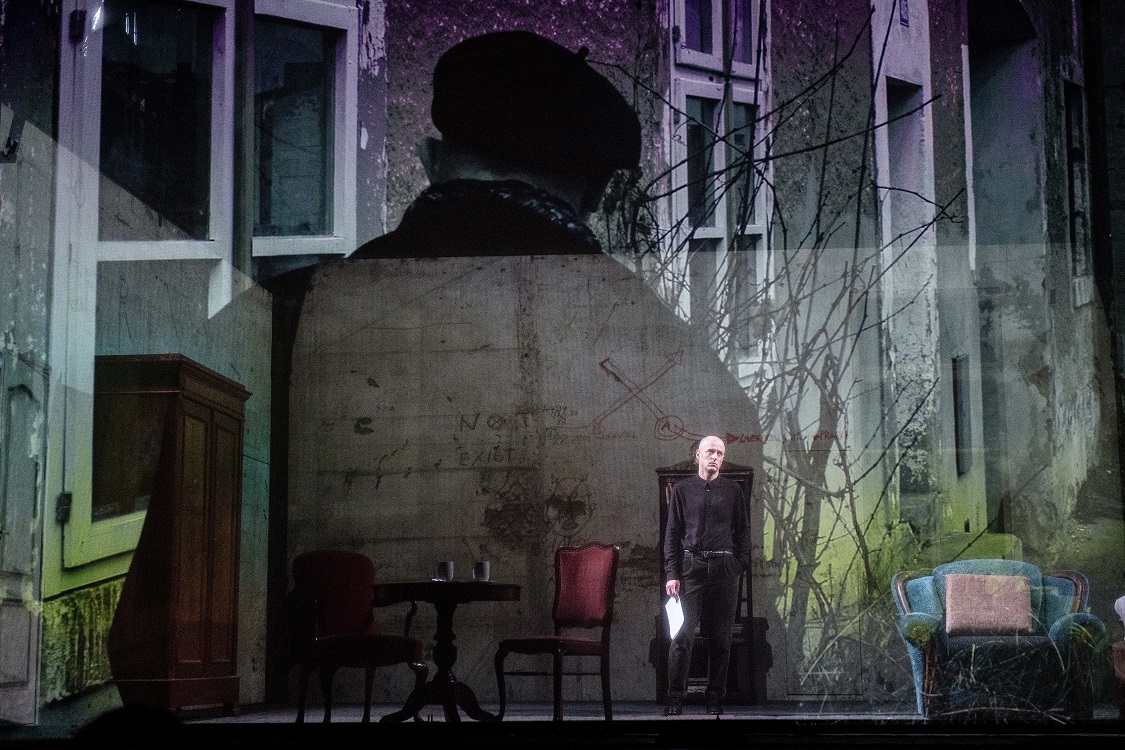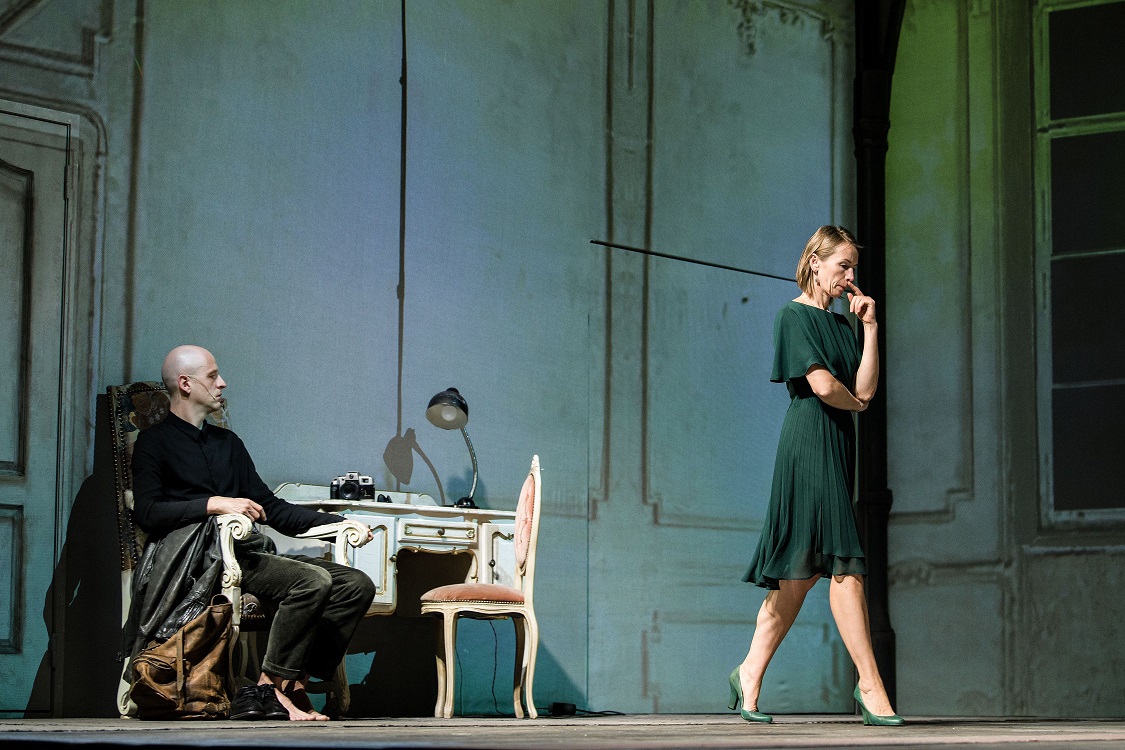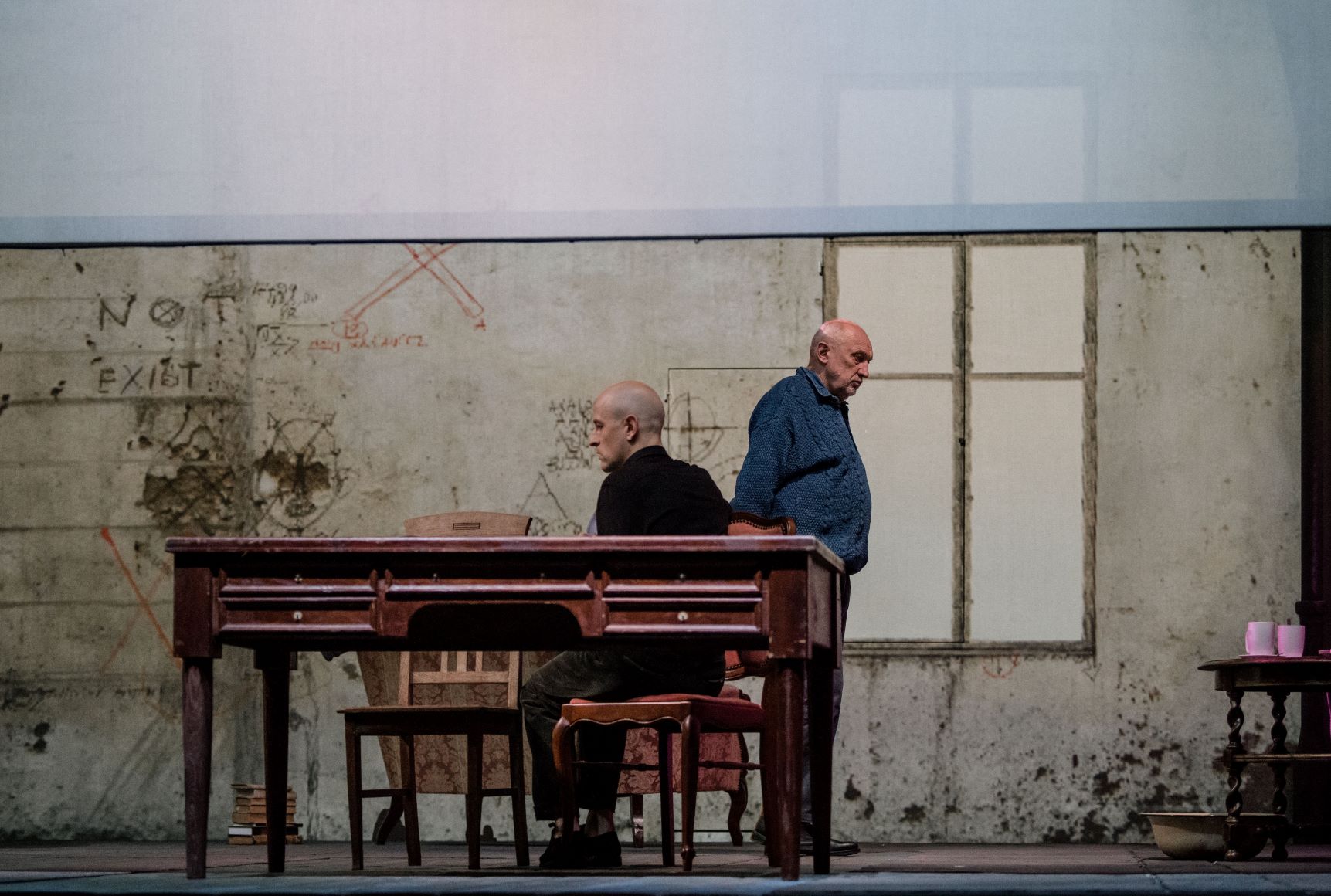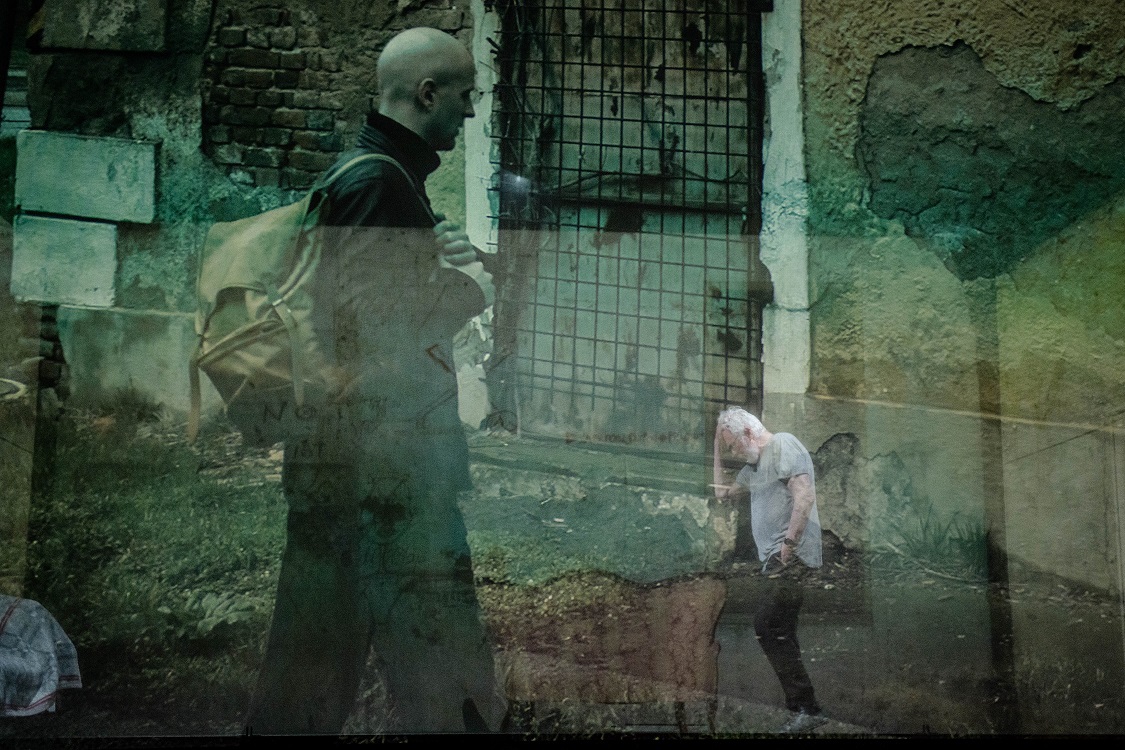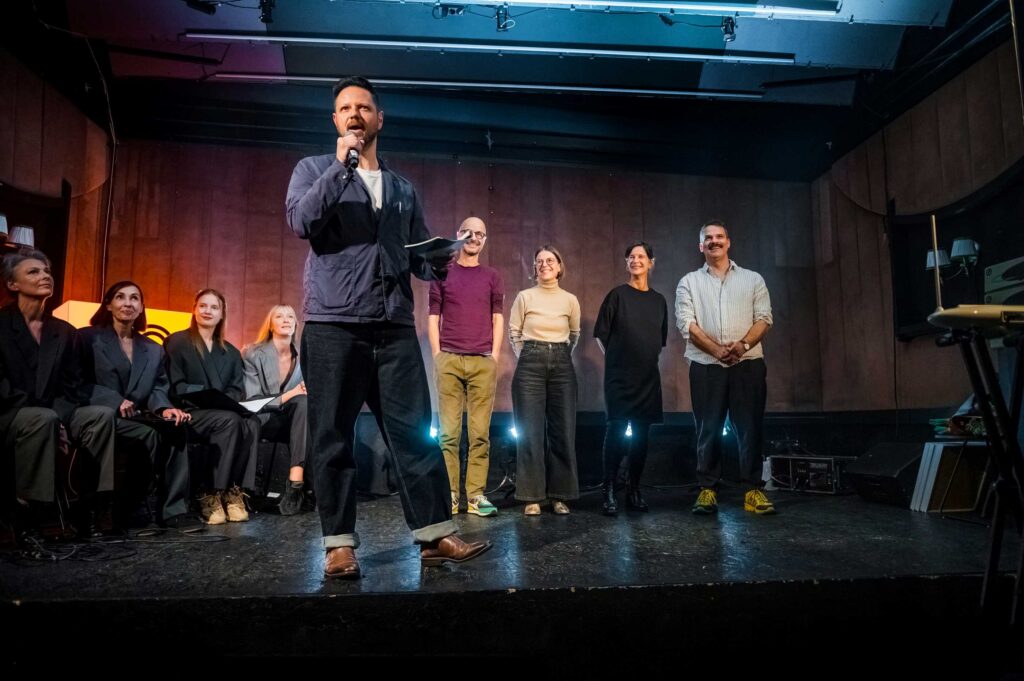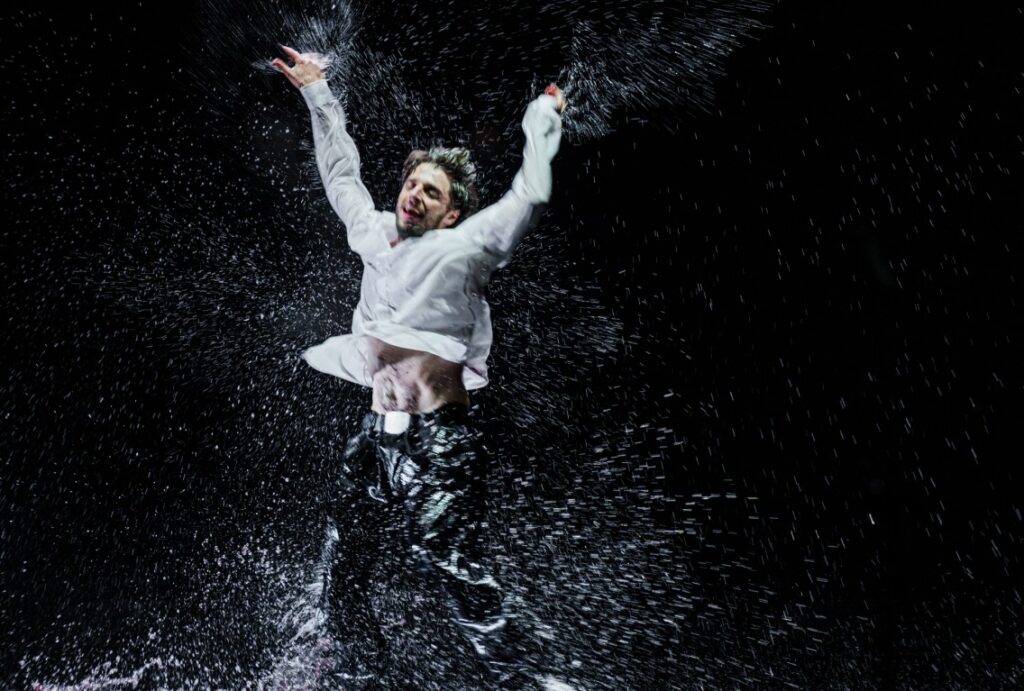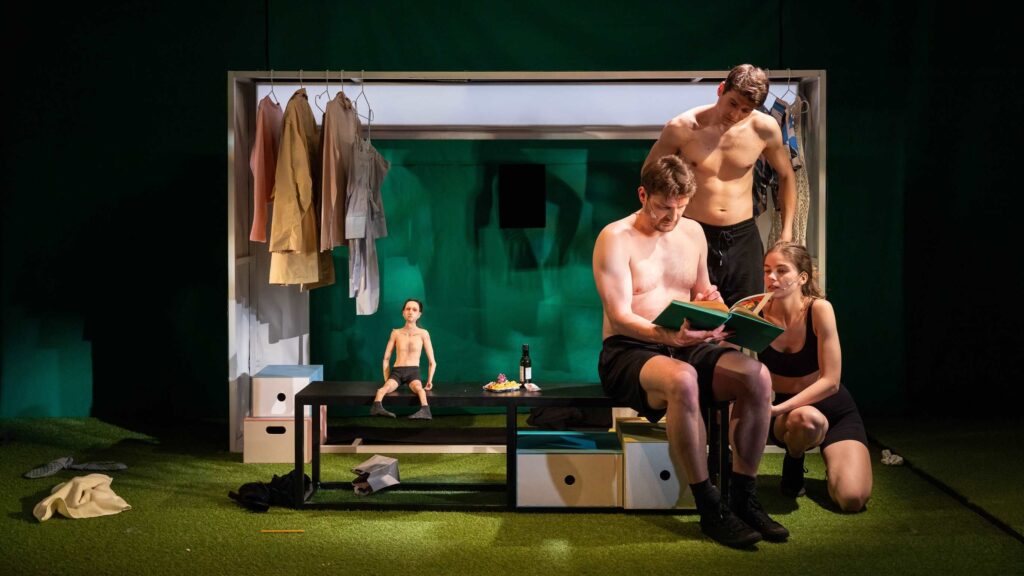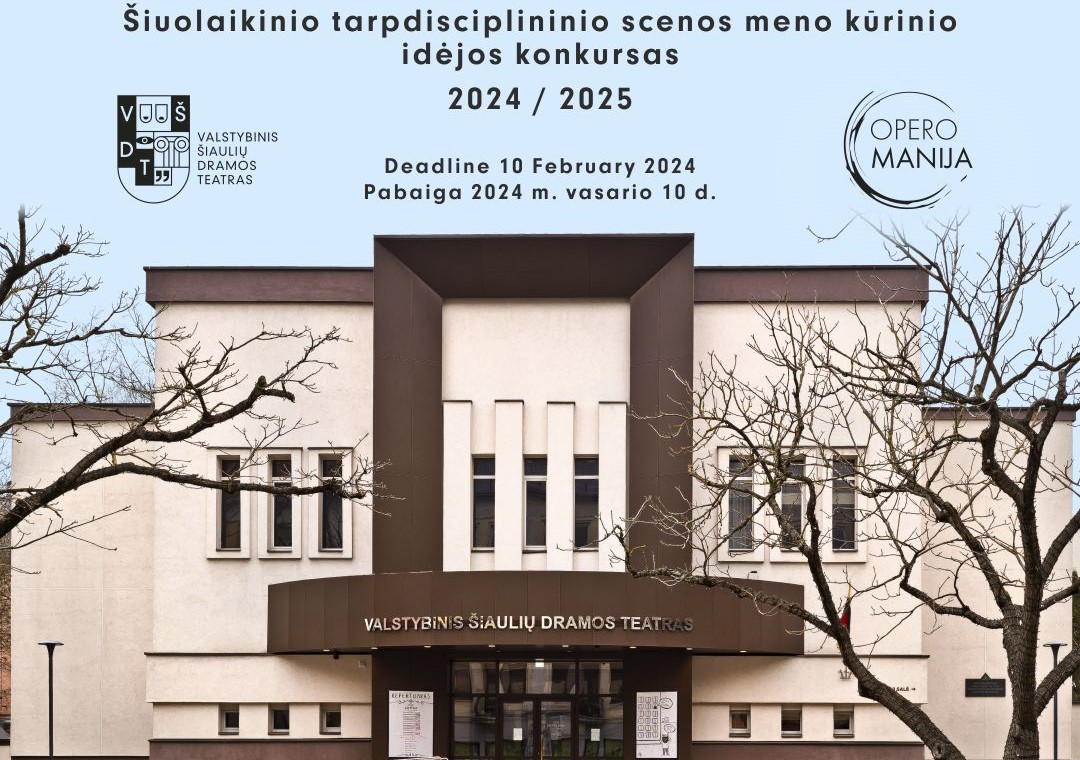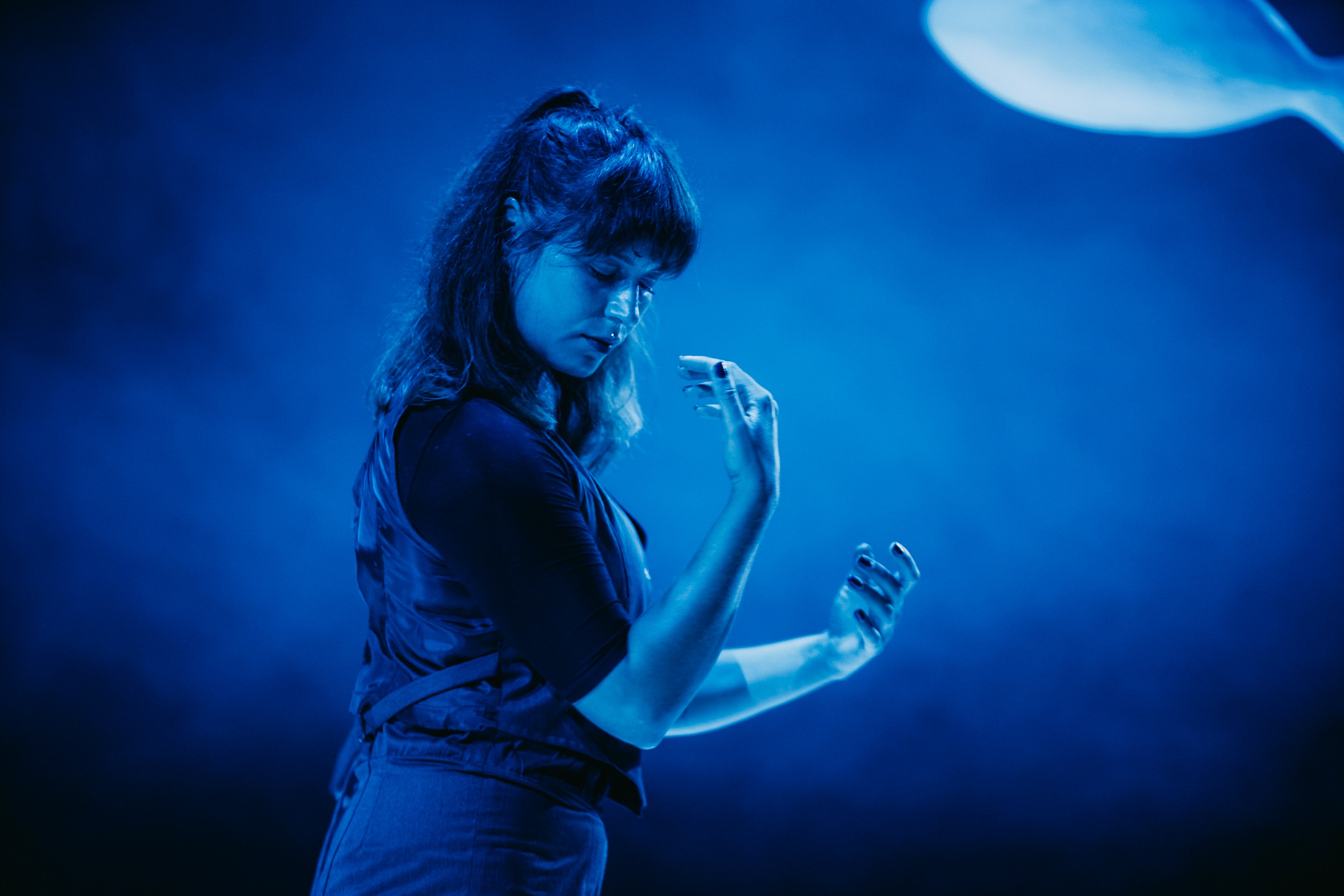Austerlitz by Krystian Lupa is the second production by this Polish director staged in Lithuania. His Place des héros [Heroes' Square] after the work by Thomas Bernhard staged at the Lithuanian National Drama Theatre gathered full house in Vilnius and actively toured abroad. In autumn of 2020, the director was once again invited to the capital city of Lithuania, this time - to the State Youth Theatre, where, encouraged by the theatre's manager Audronis Liuga (eager to remind of his contribution in representing Lupa's works in Lithuania) he opted to dramatise a novel Austerlitz by Winfried Georg Sebald.
Austerlitz is a story about a journey towards the knowledge of the self and one's family roots. Visits to Belgian, German and Czech cities and towns slowly bring the protagonist to the Terezin ghetto, where his parents were imprisoned and eventually killed. Investigating the ghetto's archives and unable to find any evidence about his parents, whose faces cannot be traced in his memories or photographs (this might explain why Lupa is so preoccupied with the photographic motif in the first part of the performance), Austerlitz desperately strives to see his mother in every single frame of video footage. After it turns out that this is a result of his imagination driven by an endless desire, rather than facts corresponding to the reality, his sub-consciousness is activated in an original manner. He dreams about the imprisonment of his young parents, and sees himself as the Nazi officer measuring and guarding them. Despite the fact that the Holocaust theme unfolds quite early and its motif follows us throughout the play, theatre critic Vaidas Jauniškis (menufaktura.lt) claims that “the topic is not dramatically tightened to the extent that it would turn into a central theme and final conclusions, while the narrative about the tragedy of the Jewish nation (only Jewish?) encloses the topic itself into a kind of cultural ghetto”.
The team behind Lupa's Austerlitz includes experienced and prominent, as well as young and already established Lithuanian actors. It will not come as a surprise to those familiar with director's works that the flow of this performance relies on slow presence of actors on stage and gradual, viscous alteration of characters. It is noted in the review by performing arts critic Aušra Kaminskaitė (menufaktura.lt): “After the play Austerlitz by Krystian Lupa ends and the six actors enter the stage for the bows - it is hard to believe there were so few of them”. However, not all of the critics agree that the actors successfully implement the director's requirement to be, grow and change on stage and that they efficiently use the time allocated by Lupa. Praising the actor Valentinas Masalskis (it is his second appearance in plays by the Polish director), reviewer Vaidas Jauniškis notes that “other actors are yet far away from mere being on stage, especially when there is no background, only an illustration of actions”. At the same time the critic notes the role played by Danutė Kuodytė, a long-term actress of the Youth Theatre, claiming that “Austerlitz turns into an acting revival of Danutė Kuodytė - she spreads a palette of precise micronic reactions, her nanny Vera is a living person made of flesh and blood, feelings and desires”. Extraordinary process of actress's emotional acknowledgement is stressed by critic Aušra Kaminskaitė as well.
The literary origin of Austerlitz was also seen as important by professional reviewers of performing arts. According to Vaidas Jauniškis, “we are watching the performance as if we were reading - hearing a dialogue, wandering into ourselves and back, since there is a lot of prose, and then we are woken up again by the voice of the director”. Theatre researcher Kristina Steiblytė (7md.lt) sees the situation somewhat more sternly: “Sebald's unobtrusive foreshadowing of events have defeated the corporeality of the theatre, the richness of the text and better developed relationships between the characters - the slow action on stage”. Equally significant (although, not that successfully developed, according to Steiblytė) roles of text and stage expression are revealed by most texts analysing Austerlitz, where attention is paid to subtle and often hard-to-verbalise means of expression, as well as the play's plot and interpretations thereof. It is easily noticeable in review by Vaidas Jauniškis analysing the directing aspects of Lupa's play, where the critic romanticises Austerlitz claiming that “hardly had this theatre ever experienced such dose of stage and beauty of aesthetics and style, where memory (always more beautiful) unfolds by removing some veils as drags from the eyes, adding new cloaks and veils; and then we continue our journey through these tales of new Scheherazade”, at the same time drawing attention to the context contained in the dramaturgy: “The play references a lot of literature, diverse architectural styles, names of cities and buildings. A rarity both on our scene and information space, reminding that some creators live in Europe, which has been their homeland for a long time, i.e. with roots and memories”.
One of the more popular epithets in Lithuanian reviews of Austerlitz is the word “rich”. This is the word one feels compelled to use to define Lupa's careful attention to numerous theatrical elements and his ability to avoid overloading these elements with unnecessary expressive means. Rich expression of the play determined emergence of several reviews in Lithuanian culture press that addressed the performance from the perspective of diverse theatrical elements. Among them is a rarely analysed music of the performance, which was discussed by musicologist Rasa Murauskaitė (menufaktura.lt). Speaking of the works by Arturas Bumšteinas, a young, experimenting composer who recently started writing more and more music for the theatre, the musicologist notes that “the sound vocabulary of Austerlitz is deeply embedded in the dramatic action”. She arrives to such conclusion after analysing both the sounds recorded by Bumšteinas himself and his selection of classical music (“in the performance these quotations of “musical past” often reference the time of the past”), and even the moments of silence: “silence surrounding dialogues is so intense that it causes ringing in the ears, forming a kind of vacuum of being, which one is willing to escape”. Referring to music as the 4th dimension or yet another invisible character, Rasa Murauskaitė grants it a physical form, claiming that “it seems that one could touch such immersive music”, at the same time comparing the score to intangible matters: “in Austerlitz music acts as a kind of mirage, or a ghost. Just like Austerlitz's parents - appearing and vanishing in the main character's memory, illusions, reality”.
When we direct our view towards Austerlitz's parents, we are bought back to the Holocaust theme, mentioned at the beginning and recurring throughout the main character's entire journey. Mirages in Lupa's play are discussed by both Murauskaitė and Steiblytė; the latter distinguishes acting of the young actress Jovita Jankelaitytė: “(Agata Austerlicova) is means to remind of the fact that the Holocaust-associated collective and personal trauma and pain have never ended; they might be quiet, may even cease tormenting, yet they keep lurking around, reminding of another time and lost opportunity of another life.” Regardless of the slow, gradual development of the Holocaust theme (as well as the characters and ways of their knowledge), occasionally vanishing and returning soon after - it strikes most vividly during the last scenes, where, according to Kristina Steiblytė, “an exhausted consciousness of Austerlitz renders a dream, where he, dressed in a uniform of an SS officer conducts the anthropological measurements of his young parents”. Defining this shift, Vaidas Jauniškis expands the context of interpretations: “an unfolding perspective of memory layers is reduced to the Holocaust tragedy, while Adam and Eve <...> are turned into the prisoners at Terezin concentration camp, the parents of Austerlitz finally meeting in his dream”.
One of the most amazing occurrences in Austerlitz - creators of the performance managed to shroud the Holocaust theme into the robe of the present day, rather than, as it frequently happens, routinely throwing accusations towards all whose fellow citizen participated in the crimes. “We, the people of the 21st century, do not have that experience [of Holocaust, author's note]. We cannot act or convey it. We ourselves cannot even sympathise with them, unless we narrate the story employing some other means”, contemplated Viktorija Kuodytė before the performance (it is her second appearance in Lupa's play), expressing an important and extremely demanding objective of the play. Whereas, the claim of Kristina Steiblytė that “the principal achievement of Lupa's Austerlitz lies in reminding of the events of the past and the duty of the living ones to witness”, confirms that the creators have succeeded.
APAC info

